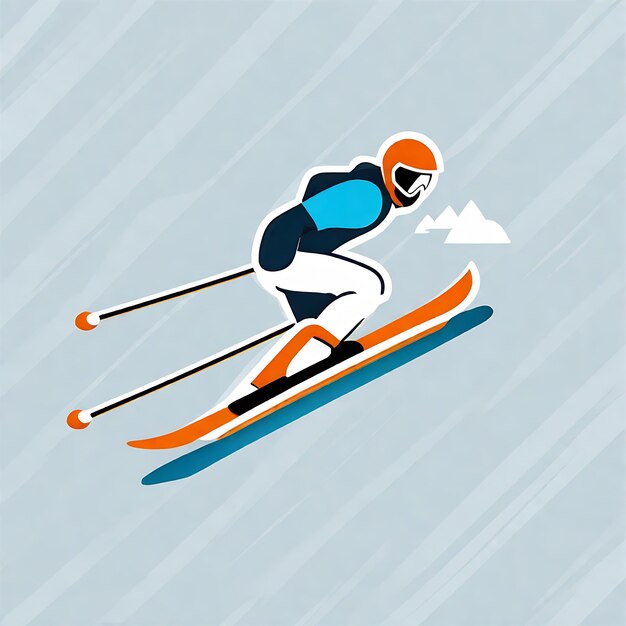Here’s a concise list of adaptive sports: wheelchair basketball, sitting volleyball, para swimming, and adaptive skiing. Adaptive sports are a vital component of physical activity for individuals with disabilities.
These sports are specifically designed to cater to the needs of people with impairments, empowering them to participate in physical activities and enjoy the benefits of sports. The wide range of adaptive sports available ensures that individuals with various disabilities can find activities that suit their abilities and interests.
Additionally, adaptive sports promote inclusivity, social interaction, and physical well-being, fostering a supportive community for individuals with disabilities. Furthermore, these sports provide opportunities for personal growth, skill development, and competitive engagement, contributing to the overall fulfilment and quality of life for individuals with disabilities.
Read also: Olympic Sports That Start With B: Bold and Breathtaking Events
The Importance Of Adaptive Sports
Adaptive sports play a crucial role in the lives of individuals with disabilities, offering them opportunities for physical activity, social inclusion, and personal growth. These sports provide a platform for individuals to showcase their talents and abilities, breaking down barriers and changing societal perceptions of what people with disabilities can achieve. In this article, we’ll explore the importance of adaptive sports, highlighting the numerous benefits they offer to both participants and communities.
Benefits Of Inclusive Athletics
Adaptive sports offer a wide range of benefits, including physical and mental health improvements, social inclusion, and community building. By providing opportunities for individuals with disabilities to participate in sports, these activities promote overall well-being and integration within society.
Physical And Mental Health Improvements
Engaging in adaptive sports activities can lead to significant improvements in both physical and mental health. Through regular physical activity, participants can enhance their cardiovascular fitness, strength, and flexibility. Moreover, the sense of achievement and empowerment derived from sports involvement can contribute to improved mental well-being and self-esteem.
Social Inclusion And Community Building
Participation in adaptive sports fosters social inclusion and community building, creating opportunities for individuals with disabilities to form connections and friendships. These sports also play a vital role in breaking down social barriers, promoting understanding, and fostering a more inclusive society. By creating a sense of belonging, adaptive sports contribute to the overall well-being and quality of life for individuals with disabilities.
Paralympic Sports
The Paralympic Games, which parallel the Olympic Games, showcase the incredible athletic abilities of individuals with disabilities. Paralympic sports bring together athletes from around the world, celebrating inclusivity and determination.
Winter Paralympic Sports
- Alpine Skiing
- Wheelchair Curling
- Sledge Hockey
Winter Paralympic sports offer unique challenges and opportunities for athletes with physical disabilities. Whether racing down slopes or maneuvering on ice, these sports demand skill, strength, and precision.
Summer Paralympic Sports
- Wheelchair Basketball
- Para Athletics
- Sitting Volleyball
Summer Paralympic sports encompass a diverse range of athletic disciplines, providing opportunities for athletes with varying abilities to showcase their talents on a global stage. From court-based competitions to track and field events, these sports exemplify the resilience and determination of Paralympic athletes.
Niche Adaptive Sports
When it comes to adaptive sports, there are some niche sports that provide unique opportunities for individuals with disabilities. These sports not only offer physical activity and competition but also foster a sense of community and empowerment. In this section, we will explore two niche adaptive sports – Power Soccer and Wheelchair Rugby – their gameplay, equipment, competitive structure, athlete training, and skill requirements.
Power Soccer
Power Soccer, also known as powerchair football, is a competitive team sport designed for individuals who use power wheelchairs. The game is played in a gymnasium and follows standard soccer rules.
Gameplay And Rules
- The game is played on a regulation basketball court with two teams of four players each.
- Players use specialized power wheelchairs to maneuver and kick the ball.
- The goal of the game is to score goals using a large soccer ball, which can be maneuvered with the wheelchairs.
Equipment And Adaptations
Power Soccer requires specialized equipment including power wheelchairs with guards to protect the players and customized footguards for striking the ball. The regulations for power soccer also include specific criteria for the powerchair size and function to ensure fairness and safety during gameplay.
Wheelchair Rugby
Wheelchair Rugby, often referred to as quad rugby, is a high-contact team sport specifically designed for individuals with impairments in at least three limbs. It is played on a regulation-sized basketball court with adaptive equipment.
Competitive Structure
- Matches are played between two teams composed of four players each.
- Points are scored by crossing the opponent’s goal line while in possession of the ball.
- Players use specially designed wheelchairs that allow for increased speed and contact during gameplay.
Athlete Training And Skill Requirements
Athletes participating in wheelchair rugby require exceptional upper body strength and agility. Training programs focus on strength conditioning, wheelchair maneuvering, and tactical gameplay strategies to excel in this fast-paced and physically demanding sport.
Emerging Adaptive Sports
As the world continues to embrace inclusivity, emerging adaptive sports have gained traction, offering individuals with physical and cognitive disabilities the opportunity to engage in competitive and recreational activities. These adaptive sports are not only breaking barriers but also fostering a sense of community, driving accessibility in sports, and drawing global recognition. Let’s dive into some of these emerging adaptive sports, their unique features, and the impact they are making in the sports world.
Adaptive Surfing
Adaptive surfing is gaining popularity as a thrilling water sport, providing individuals with disabilities the chance to ride the waves and experience the exhilaration of surfing. The accessibility of adaptive surfboards and beach wheelchairs has opened up new possibilities for participants, enabling them to navigate the waves with ease.
Accessibility And Equipment
Accessibility and equipment are crucial in adaptive sports. Through advancements in technology, specialized gear and adaptive equipment are developed to cater to the diverse needs of athletes with disabilities, creating a level playing field and ensuring equal participation in sports.
Community Impact And Growth
The impact of adaptive sports goes beyond the individual athlete, as these activities foster a strong sense of community and support networks. The growing interest and involvement in adaptive sports have led to the establishment of inclusive sporting communities, promoting a sense of camaraderie and inclusivity.
Blind Soccer
Blind soccer, also known as goalball, features unique rules and adaptations to accommodate visually impaired players. Relying on auditory cues and tactile communication, this immersive team sport offers a dynamic and challenging experience for athletes with visual disabilities.
Unique Rules And Adaptations
From modified equipment to specialized rules, adaptive sports often feature unique adaptations to ensure that all participants can engage in a competitive and enjoyable experience. These tailored adjustments contribute to the diverse nature of adaptive sports and showcase the innovation within the sporting community.
Global Recognition And Future Prospects
With increased global recognition and advocacy efforts, adaptive sports are paving the way for a future where inclusivity in sports is the norm. As these sports gain prominence on the world stage, there are promising prospects for further expansion, creating opportunities for athletes with disabilities to excel and inspire future generations.

Credit: www.npr.org
Frequently Asked Questions Of List Of Adaptive Sports With Detail
What Are Adaptive Sports?
Adaptive sports are activities designed for individuals with disabilities to participate in, promoting physical fitness and skill development. These sports often incorporate modifications to accommodate varying abilities and include a wide range of athletic pursuits.
What Are The Benefits Of Participating In Adaptive Sports?
Engaging in adaptive sports can enhance physical and mental well-being, providing opportunities for social interaction, skill improvement, and increased confidence. Participation fosters a sense of inclusivity, empowerment, and a greater appreciation for diversity and perseverance.
How Can One Get Involved In Adaptive Sports?
Individuals interested in participating in adaptive sports can explore local organizations, community centers, and disability support groups to find opportunities for involvement. Many regions offer adaptive sports programs and clubs, providing resources and assistance for individuals seeking to join.
What Types Of Adaptive Sports Are Available?
A diverse array of adaptive sports exists, catering to varying interests and abilities. Examples include wheelchair basketball, para-athletics, adaptive skiing, para-equestrian, and wheelchair rugby, offering options for both competitive and recreational participation.
Must Read: What Sports are Accessible for People With Disabilities? Discover Inclusive Sporting Opportunities!
Conclusion
Adaptive sports offer inclusive opportunities for individuals with disabilities to stay active and engaged in physical activities. With a variety of options, such as wheelchair basketball, skiing, and cycling, there’s truly something for everyone. These sports not only promote physical well-being but also foster a sense of belonging and empowerment.
Whether it’s for leisure or competition, adaptive sports play a significant role in enhancing the quality of life for participants.



